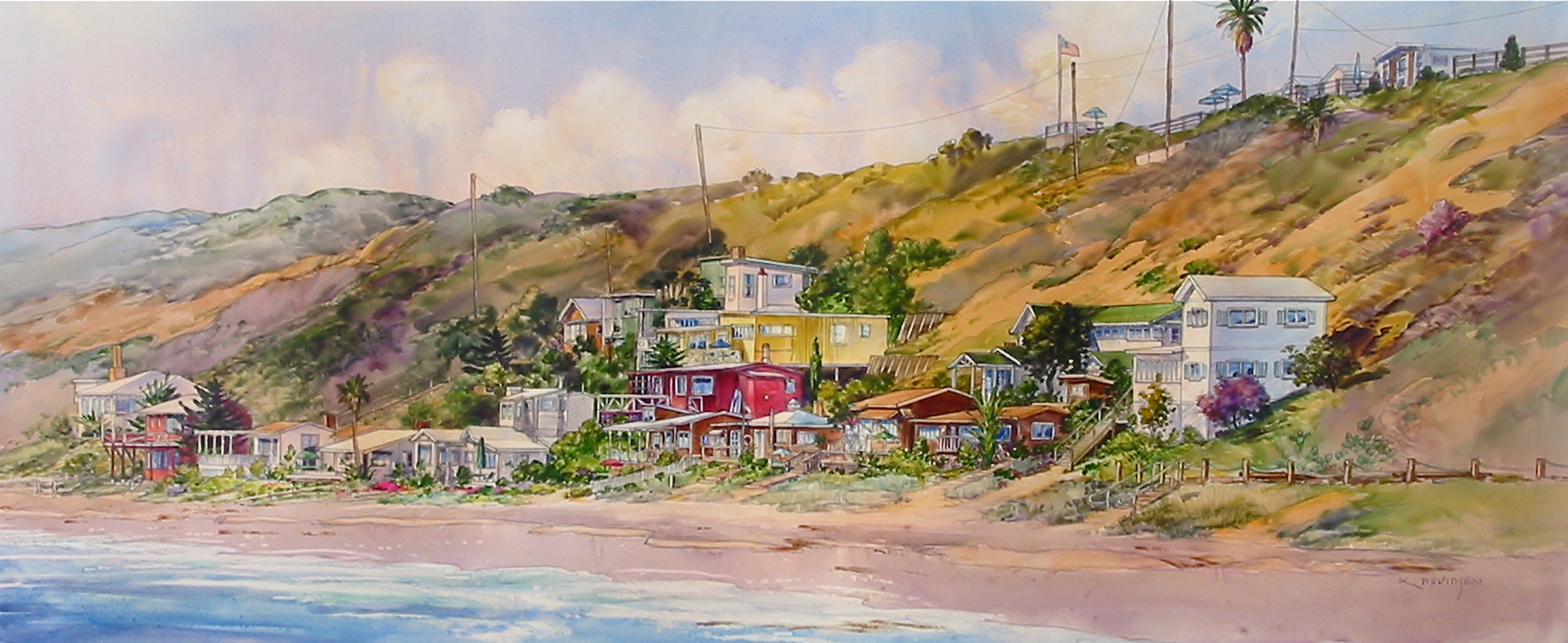Rain Dancer Beats the Drum for Conservation
By Gina Dostler
The current drought’s consequences for California aren’t fully clear, but the dwindling supply’s impact on water management is already being felt the world over. David Feldman chairs the UC Irvine School of Social Ecology planning, policy and design department. He explains the importance of conservation.
Q: What drew you to social ecology?
A: I started out as a political scientist and studied environmental policies and issues. I was originally aiming for a career in politics. I mean, I was going to be governor of Ohio! Then I had an opportunity to work for a state water agency in the Midwest. It was transformative. I knew nothing in the beginning but learned fairly early on a lot of issues facing water are very complex and very much politically based. When I moved to California, the issues regarding water in this state profoundly illustrated this principle.
Q: So how did California’s drought happen?
A: Droughts happen. They’ve always happened. So it’s necessary to be prepared for one if you live in a generally dry place, such as we do. It might be worsened by climate change and a lot of scientists contend it is getting worse. As for California’s drought, this one is really bad, the worst in history. We’ve had very little precipitation in the last four years, our winters in particular. It’s the snow pack where we get our water supply. And so far we have had very little.
Q: How long do we have before water runs out?
A: Nobody is really quite certain. Some water will be replenished, but the best guess is it won’t be at the levels we’ve had in the past. But regardless if we do get a lot more rain, though projections say we are not, we have to discuss and put plans into action. We simply have to buckle down and learn ways to conserve.
Q: Which in fact you will be doing next week.
A: UCI will be hosting a conference titled “California Drought: Causes, Consequences and Policy” is a forum for those discussions on ways to conserve water. Water managers, policymakers and top researchers from across the United States will be there to present their research that includes information on water supply, ecosystems, drought monitoring, climate change, water policies and solutions. We simply need to better manage California’s water and so we are bringing people together to make it happen.
Q: It looks like it’s already happening with a new mandate from Gov. Brown.
A: Exactly. And big cities are the big problem. Brown’s efforts forces water utilities to step it up. Last year the request for conservation was voluntary. Now the state has evoked more stringent mandates of using less water. Agriculture has already made significant cutbacks. Many acres are now fallow, not growing anything, which is one of the reasons for the high unemployment rate in the central valley. These are severe blows to the state. It also impacts the price of food, and not just locally, but globally. California is a major agricultural export state and more dramatic impacts will continue as time moves on.
Q: You mentioned water utilities need to step it up. How?
A: There are a variety of measures to take, such as charging more for water or mandatory cutbacks in public uses of water for parks, median strips and commercial properties. But a lot of it is just going to be voluntary on the part of residents to use less water. Open wasteful uses of water such as watering down driveways could garner a fine, but that is up to the local communities to implement. Economic incentives like putting in drought tolerant landscapes, replacing sprinkler heads with rotating nozzles. The Municipal Water District of Orange County has a great website with rebates and resources as incentives to help conserve water. Visit it at www.ocwatersmart.com.
Q: What do you mean water will be somewhat replenished?
A: Our water from the Colorado River has already seen severe cutbacks. But there are water supply options like our groundwater replenishment system where we recycle then replenish. It’s completely safe, potable and a major source of water for central and southern California. There are other options on the horizon such as desalination plants. Granted these can’t be built in two weeks, making it a long term public investment. Huntington Beach has plans for one. And Carlsbad already has one in construction to come on line next year.
Q: So for now, is just cutting rations going to do it?
A: Really the big change is going to have to be a meteorological shift for more water to occur over time. But until that happens, people need to think in terms of the absence of more water and the need to control our demand. There is no other place to get water.
Q: And if we don’t do anything?
A: We have to do something because if there is less water to provide customers, less water will be available. There are some serious conservation and serious allocations of water needed. You have to ask yourself, what is more important when rationing water, lush green lawns or water for more important purposes such as the basics needed to live? There is a classical argument in California that maybe we should stop eating almonds, a high water usage crop. But almonds are a high-income crop, employ a lot of people giving it value for society. I say, don’t shoot yourself in the foot. Think in terms of the wisest use of water and go from there.
David L. Feldman, Ph.D.
UC Irvine, 202B Social Ecology 1
Mail Code: 7075
Irvine, CA
Phone 949-824-4384
feldmand@uci.edu



